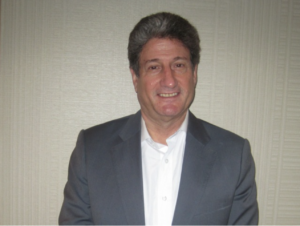EMDR Treatment of Chronically Traumatized Clients
About
This is an EMDR Advanced Training that will be held on Friday and Saturday, May 19, 20, 2017 in Dallas (Allen), Texas at the Garden Hilton Inn. Go to Time & Location Information
Attendees must have completed a full EMDRIA approved EMDR Therapist training (formerly known as “Level1 and Level2”). Reviewing of Francine Shapiro’s text, Eye Movement Desensitization and Reprocessing: Basic Principles, Protocol and Procedures is strongly suggested.
Facebook Group
When you register, you will be invited to join a closed facebook group to ask Roger questions about the workshop and working with chronically traumatized clients. The group will be open for two months after the workshop so you can ask follow-up questions.
Tuition
Early Bird $375.00 – until May 5, 2017, After May 5, 2017 – $425.00
14 EMDRIA Credits, and 14 Credits are included.
Go To Registration
Presenter
 Dr. Roger Solomon is a psychologist specializing in the areas of trauma and grief. Dr. Solomon has co-authored and co-presented with Onno van der Hart, Ph.D. and Ellert R. S. Nijenhuis Ph.D. on the utilization of EMDR therapy with complex trauma. He has been Senior Faculty with the EMDR Institute since 1993 and was trained by Francine Shapiro, Ph.D. the founder of EMDR. He teaches the EMDR basic training nationally and internationally; and he has developed and presents advanced workshops on EMDR and grief, complex and acute trauma, psychological first aid, and working with first responders. Recently he taught workshops on utilization of EMDR with complex trauma and grief in Israel. He regularly consults with the US Senate, providing direct services through the Senate Employee Assistance Program. He has authored or co-authored 41 articles and book chapters pertaining to EMDR, trauma, grief, acute trauma and law enforcement stress.
Dr. Roger Solomon is a psychologist specializing in the areas of trauma and grief. Dr. Solomon has co-authored and co-presented with Onno van der Hart, Ph.D. and Ellert R. S. Nijenhuis Ph.D. on the utilization of EMDR therapy with complex trauma. He has been Senior Faculty with the EMDR Institute since 1993 and was trained by Francine Shapiro, Ph.D. the founder of EMDR. He teaches the EMDR basic training nationally and internationally; and he has developed and presents advanced workshops on EMDR and grief, complex and acute trauma, psychological first aid, and working with first responders. Recently he taught workshops on utilization of EMDR with complex trauma and grief in Israel. He regularly consults with the US Senate, providing direct services through the Senate Employee Assistance Program. He has authored or co-authored 41 articles and book chapters pertaining to EMDR, trauma, grief, acute trauma and law enforcement stress.
Overview
There is currently consensus that the EMDR standard protocol needs modification for clients diagnosed with a combination of personality and complex trauma related disorders, the consequence of a history of chronic abuse and failure of attachment. This two-day workshop is designed to help experienced clinicians apply appropriate EMDR therapy adaptations when working with these clients because of the strong potential for destabilization. Participants will be taught the dissociative nature of these disorders and how to treat them within the framework of EMDR. They will gain a solid understanding of the structure of the dissociative personality: the dissociative parts, their strengths deficits and their interrelationships.
Participants will be taught the essential preparatory work needed before integrating and reprocessing traumatic memories using the framework of phase-oriented treatment and the theory of structural dissociation of the personality. Phase-oriented treatment has its origins in the pioneering work of Pierre Janet ‘s psychology of action and advanced by psychologists Onno van der Hart, Ph.D. and Ellert Nijenhuis, Ph.D. There are three phases in treatment: (1) stabilization and symptom reduction; (2) treatment of traumatic memories; and (3) personality (re)integration and rehabilitation. Its application takes the form of a spiral, in which the different treatment phases can be alternated according to the needs of the client with the overall treatment goal to help clients gradually strengthen the personality structure allowing for the system to operate optimally.
Within this context, the workshop will address dealing with blocked EMDR processing, use of cognitive interweaves, time orientation of parts, and “dissociative table” to facilitate co-consciousness and titrate emotional intensity.
There will be ample time for discussion. Videos of client sessions that will illustrate teaching points will be shown. (Warning: videos have strong emotional content typical of clients with complex trauma). Dr. Solomon’s three publications on utilization of EMDR therapy with complex trauma, written with an international team headed by Onno van der Hart, Ph.D. and Ellert R. S. Nijenhuis Ph.D., will be emailed to participants prior to the workshop.
(Current research is limited in the application of EMDR to trauma-related disorders.)
Objectives
Participants will:
- Discuss the theory and history of structural dissociation of the personality and how the personality can split into parts when there are chronic conditions of abuse or neglect.
- Identify how the Adaptive Information Processing Model, which guides EMDR therapy and discuss modifications of the standard EMDR protocol appropriate for complex trauma.
- Describe how to help keep clients within their window of tolerance.
- Apply phase oriented therapy to complex trauma related disorders
Date and Times:
Day 1 – Friday, May 19, 2017
8:00-8:30 AM Coffee & Registration
8:30 – 10:15 Introduction of The Theory of Structural Dissociation of the Personality.
10:15 – 10:30 Break
10:30 – 12:00 Dissociation continued. Introduction to Phase Oriented Treatment and EMDR
12-1:30 PM Lunch (on your own)
1:30 – 3:00 Phase 1: Stabilization
3:00 – 3:15 Break
3:15 – 4:30 Stabilization, continued
4:30 – 5:00 Summary and Wrap up
Day 2 – Saturday, May 20, 2017
8:00-8:30 AM Coffee & Check-in
8:30-10:15 Phase 2: Memory work: safe use of EMDR for memory processing
10:15- 10:30 Break
10:30 -12:00 Memory work, continued
12:00 – 1:30 Lunch
1:30 – 3:00 Memory work, continued, Phase 3: Personality (Re)Integration
3:00 – 3:15 Break
3:15 – 4:30 Personality (Re)Integration, continued
4:30 – 5:00 Summary and Wrap up
Location:
Hilton Garden Inn Dallas/Allen
705 Central Expressway South
Allen, Texas 75013
Tel: 214-547-1700
Fax: 214-547-1705
Tuition:
Early Bird $375.00 – until May 5, 2017, After May 5, 2017 – $425.00
Go to Registration
Continuing Education Information:
Ce-Classes.com is the provider of (CEs).
- Ce-Classes.com is approved by the American Psychological Association to sponsor continuing education for psychologists. Ce-Classes.com maintains responsibility for this program and its content.
- Association of Social Work Boards (ASWB) www.aswb.org Approved Continuing Education Program (ACE). (Provider # 1142) Ce-Classes.com maintains responsibility for the program. Social Workers should contact their regulatory board to determine course approval.
- The National Association of Addiction Professionals (NAADAC) Provider #656
- The Florida Board of Clinical Social Work, Marriage and Family Therapy and Mental Health
- Counseling Provider #852 BAP-Expires 3/31/2017
- California BBS: Ce-Classes.com is approved to provide continuing education by the following professional organizations: ASWB and APA. The California Board of Behavioral Sciences, BBS, recognizes relevant course work/training that has been approved by these nationally recognized certifying bodies to satisfy renewal requirements.
- The California Association of Alcoholism and Drug Abuse Counselors (CAADAC) Provider Number OS-12-174-1116 Expires 11-2018
- The Texas Board of Social Work Examiners, Continuing Education Provider – 5674 expires 4/30/2018.
- The Texas Board of Professional Counselors, Continuing Education Provider – 1622 expires 2/28/2018.
- Massachusetts Authorization Number: (TBD)
- Ohio Counselor, Social Worker and Marriage and Family Therapist Board – Provider # RCST031201 Expires 5/31/2017
- The Florida Board of Nursing (CE Provider #: 50-4896) Expires 10/31/2018. Do not send certificates to the Florida Board to the Florida Board of Nursing you must keep this certificate for 4 years.
- The California Board of Registered Nursing. CEP 15647 Expires 11/30/2018
- New York Social Work Board NYSED Provider #120
(14 EMDRIA Credits, and 14 Credits are included.)
Certificates are awarded online after completion of the workshop. Participants print their own certificate after registering at ce-classes.com, entering a keycode, and completing an evaluation form.
“Licensed Professionals should contact their regulatory board to determine course approval.”
Cancellation/Refund: Your tuition is refundable less a processing fee of $75.00 up to 10 days prior to the workshop date. After 10 days prior, no credit is given.
Grievances: All grievances must be in writing to Jordan Shafer, and will be replied to within 5 – 10 business days.)
ADA: This workshop is held in facilities which are in compliance with the Americans Disabilities Act. Please contact Jordan Shafer if special accommodation is required.)

